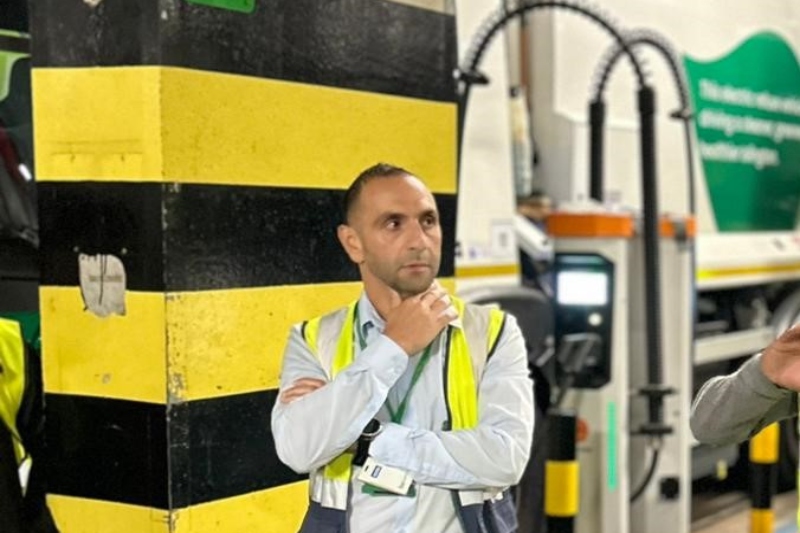

What is the size and makeup of your fleet?
We have a large fleet of 540 vehicles, ranging from cars, vans, sweepers, cage tippers, refuse collection vehicles, buses, and a telehandler. Our fleet also includes many power-assisted vehicles, including e-bikes and electric assisted vehicles (EAVs). Where possible, we are trying to actively reduce the size of our fleet and encourage staff to carry out work in a different way, which includes the increased use of bikes and cargo bikes.
How many depots and workshops do you have?
Our main depot is the Waste Recycling Centre & Transfer Station at Cottage Road, which is also one of our two licensed operating centres. We have over 200 vehicles in our main depot, which primarily hosts our HGV vehicles. We also have a number of other smaller sites scattered across the borough, which have between six and 12 vehicles residing there.
Again, our workshop is located at our Cottage Road site, and this is where we inspect, repair, service and maintain our 500+ vehicles and plant. Whilst we don’t have an MOT test centre on site, this is something we are actively looking at for the future.
What are the main services you deliver to the public?
You name it, we deliver it! All of our front line or essential services are delivered in-house including waste and street cleansing services, housing and highways repairs, community transport, as well as telecare emergency services for elderly or vulnerable residents.
What trends and developments have you seen over the last couple of years?
We are committed to providing a greener, healthier borough for our residents and businesses, and we are slowly phasing out our fossil fuelled vehicles whilst at the same time trying to reduce our fleet. We have made huge investment in our net-zero capital projects including electrifying our fleet and the associated infrastructure you require to power an electric fleet. We are now approaching the 100 full battery electric vehicle milestone. We still have a long way to go, and hope we can electrify the rest of the fleet we will be keeping before our own 2030 target date.
We have seen a huge improvement in battery technology over the last few years, which will only get better. This will make the transition from internal combustion engine vehicles to battery electric even easier with increased range and payloads.
We have also seen an influx of various power-assisted vehicles being used within Islington in recent years including electric cargo bikes, and we expect to have many more within our fleet over the next few years. They are a great solution for urban delivery and logistics as they reduce congestion, noise, and our carbon footprint, and mean our staff can get around the borough more effectively.
What are your main drivers as a fleet manager?
Whilst e-mobility and all that goes with it is a huge part of my role, the reliability and safety of our vehicles and staff is paramount. Without roadworthy vehicles and well-trained staff, we simply cannot help run efficient and effective services.
What role does sustainability play in your operation?
Other than trying to reduce our carbon footprint by transitioning to electric vehicles and reducing our fleet, we are aware that all vehicles produce some type of greenhouse gas, and I am working with tyre manufacturers to see how we can further reduce particulate matter from tyres. We also expect that manufacturers we procure vehicles from have robust Environmental, Social and Governance (ESG) strategies as we want to ensure batteries and components for these batteries are sourced in both an ethical and sustainable manner.
We also use different tools including telematics data to improve driver behaviour efficiency, with regular training offered to those who we feel are not improving!
How do you see municipal fleet management changing over the next 10 years?
Where do we start? It’s a hugely exciting time to be involved in fleet and transport. We’re seeing advancements in vehicle technology, particularly in electric vehicles from improved Advanced Driver-Assistance Systems (ADAS), data driven real time telematics, as well as the industry getting even closer to autonomous driving. Vehicle to Grid (V2G) or Vehicle to Everything (V2X) is particularly important to me and is something I feel will be an industry game changer. In an ever-changing industry, we in Islington want to be at the forefront.
Sign up here to receive our free weekly news bulletin and quarterly e-book.